Cape Town
‘Shoot to kill! Kill the Boer, the farmer! Kill the Boer, the farmer! Brrrr! Pah! Pah!’ These were the words chanted in fine voice by Julius Malema to a rapturous crowd of 100,000 at South Africa’s biggest stadium in Johannesburg on Saturday 29 July. Malema was celebrating the tenth birthday of the EFF, the political party he founded and leads.
EFF stands for Economic Freedom Fighters. It is dedicated to fighting economic slavery. It declares itself Leninist–Marxist, wants to seize private property (as Malema’s hero Robert Mugabe did in Zimbabwe), plans to nationalise the banks and the mines and enforce total state control. The EFF is the fastest-growing political party in South Africa and Malema the most forceful political leader. After the general election next year, he could become the deputy president of South Africa. Anybody thinking of investing in the country should know this.
Boer is the Afrikaans word for farmer but can mean any white Afrikaner. At the time of Malema’s performance, I was reading a book by a Boer, Ernst Roets, entitled Kill the Boer. It gives detailed – and horrible – accounts of recent farm murders in South Africa. What is striking is the sadism of the killers. You can understand their robbing and killing (to remove witnesses), but what is hard to understand is their prolonged torture and gloating cruelty.
A housewife was seized by two black attackers and forced to watch her partner’s face collapsing as his skull was smashed with a sledgehammer. Six men with machetes broke into a farm and slashed the farmer to death; his two-year-old daughter ran to her father, her little feet becoming soaked in his blood. The killers shot her dead; they made her mother open the safe, before shooting her dead too. An Irish farmer was tortured with a blowlamp. Roets gives statistics on the murders and speculates on their motives.
Malema began his political career in the Youth League of the ANC, which has ruled South Africa since 1994. He was expelled in 2012 and started his own party a year later. His policies are in many ways identical to the ANC’s; his personal behaviour almost identical to that of the ANC elite. The EFF is Marxist, hates capitalism, hates the West, loves socialism, wants state control, worships Cuba, supports Vladimir Putin in Ukraine. (His disavowal of communism doesn’t seem to matter.) Its members address each other as ‘comrades’. The ANC, whose guiding programme is the National Democratic Revolution, wants the same, and recently passed a bill for expropriation without compensation, no doubt hoping to emulate Mugabe’s seizure of the white farms.
Malema is a strong leader, a good orator, an excellent organiser and a brilliant showman. He makes EFF members wear red overalls to show solidarity with the black working classes. But he himself despises the working classes and shows it. He sent his son to a posh private school, while working-class children are condemned to terrible ANC state schools, producing among the lowest literacy rates in the world. He believes in public transport but travels in Range Rovers and Mercedes. He wears a Breitling watch. His wardrobe is full of Italian clothes. A journalist obtained a list of items bought on a credit card that appeared to follow him around the country: it included purchases made at Gucci, Louis Vuitton, Lacoste and Emporio Armani.
ANC leaders, who also say they believe in socialism, behave like him. The ANC is thoroughly corrupt and so is the EFF. The EFF is just a louder, more adamant version of the ANC.
The ANC has been a disaster for South Africa, and especially for ordinary black people, whom it has impoverished while making a tiny ANC elite fabulously rich. In 1994, for all the cruelty and stupidity of apartheid, South Africa had excellent infrastructure and reasonably advanced industry. Eskom, the state electricity utility, provided the cheapest electricity in the world, very reliably; there were good passenger trains for workers; the freight trains carried ores to the port. The ANC has wrecked it all with looting, corruption, incompetence and a plethora of racist policies, appointing people on the basis of skin colour and political connections rather than merit.
Goods and services are procured not on competitive pricing and quality but on Black Economic Empowerment, which means awarding contracts for shoddy services at high prices to ANC cronies. Eskom has been wrecked, and as a result we have hours of blackouts almost every day. Meanwhile the passenger trains hardly run at all; the freight trains cannot deliver our export minerals to ports. The economy is stagnant, industry is shrinking and unemployment is catastrophic, now at 42 per cent (including those who have given up looking for work).
With regard to the farm murders, Roets comments on the muted way the media report them. This explains the media’s reaction to a tweet by another South African, Elon Musk. Musk was born in Pretoria in 1971, left South Africa when he was 18, went to Canada and then the US, where he achieved his extraordinary success. It seems unlikely he could have done the same in South Africa. Following Malema’s song of hate, Musk tweeted: ‘They are openly pushing for genocide of white people in SA. Cyril Ramaphosa, why do you say nothing?’ (Ramaphosa has been the President of South Africa since 2018.) Malema responded: ‘O bolela masepa.’ Translation: ‘You are talking rubbish.’ Many of the western media took Malema’s side. They called Musk a racist for objecting to ‘Kill the Boer’. ‘Despite the words, the song should not be taken as a literal call to violence,’ said the New York Times.
When a white man kills a black man, there is outrage. When a black man kills a white man, there is qualified sympathy. When a black man kills a black man, there is silence. Think of Uganda, Burundi, Rwanda, the Sudan, the Congo and Zimbabwe. In Rhodesia there was furious condemnation of every crime of Ian Smith’s white regime. In the 1980s, Mugabe ordered the carefully planned slaughter of more than 20,000 black men, women, children and unborn babies in Operation Gukurahundi. Hardly a peep from the world’s media. For them black lives do not matter. Only white sin does. This explains their reaction to Malema’s song and Musk’s tweet, and their subdued reaction to the farm murders. Last year, the South African Equality Court ruled that ‘Kill the Boer’ was not hate speech.
Has ‘Kill the Boer’ led to farm murders? This is difficult to tell. South Africa is one of the most violent and dangerous countries on Earth. Last year, our murder rate was 44 per 100,000, just ahead of Venezuela (which the ANC admires). The farm murders are difficult to analyse in such a sea of blood. The motives of the killers are not just financial but have deeper psychological reasons, in which race seems to play a part. Roets cites statistics that suggest the farm murders increase after inflammatory songs from Malema. But it is going too far to say that the songs are a call for white genocide.
The ANC won 69 per cent of the vote in 2004 but only 57.5 per cent in 2019. The EFF, starting from nothing, won 6 per cent in 2014 and 11 per cent in 2019, the most successful start-up of any South African party. In next year’s general election, the ANC might fall below 50 per cent, and could only rule by coalition. The obvious partner is the EFF, which would dominate such a coalition. Malema could become President Ramaphosa’s deputy. He is forceful and Ramaphosa is weak. Malema would push him aside. The EFF’s anti-western, pro–Marxist policies would become fully enacted as the official policies of South Africa.
Got something to add? Join the discussion and comment below.
Get 10 issues for just $10
Subscribe to The Spectator Australia today for the next 10 magazine issues, plus full online access, for just $10.
You might disagree with half of it, but you’ll enjoy reading all of it. Try your first month for free, then just $2 a week for the remainder of your first year.

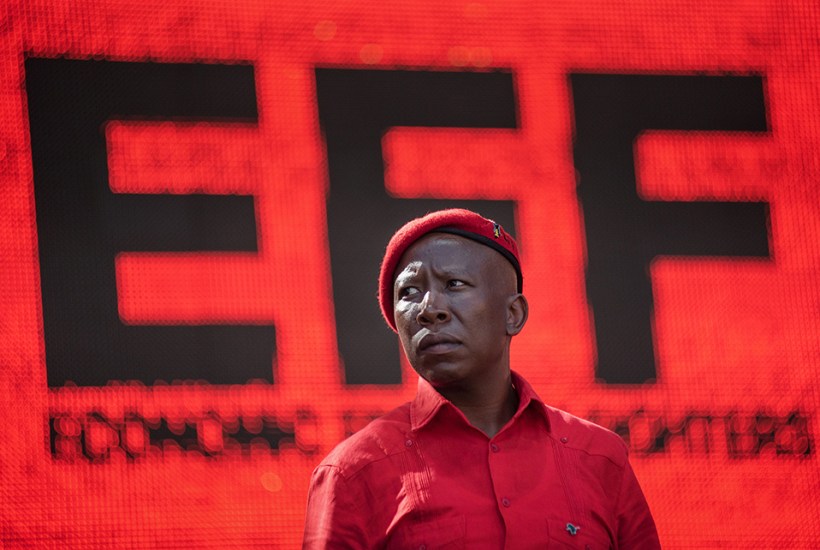
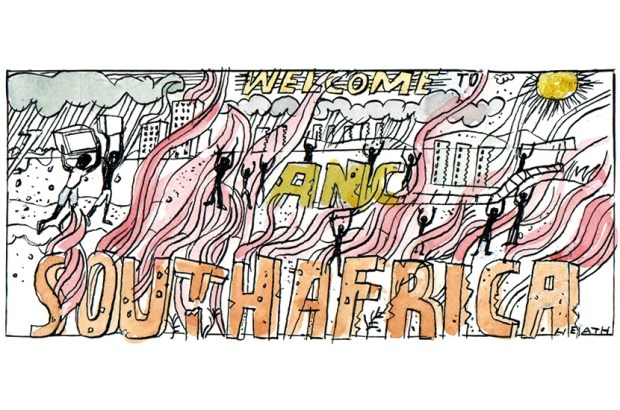
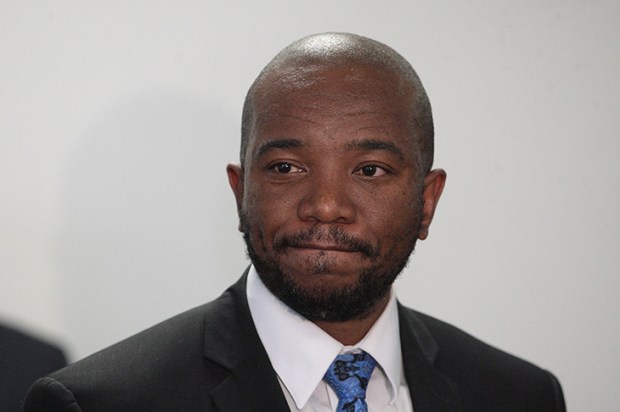
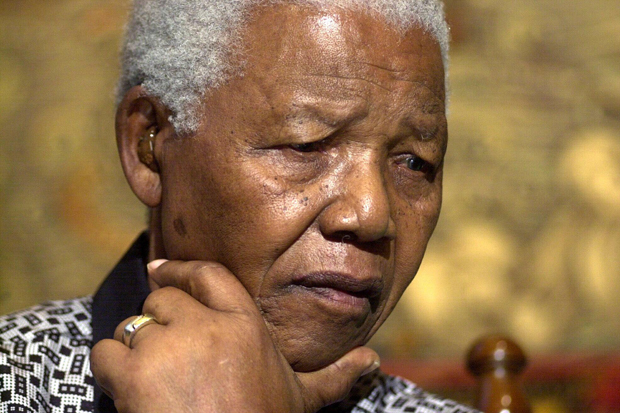
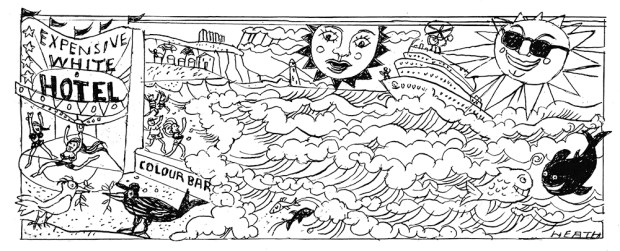
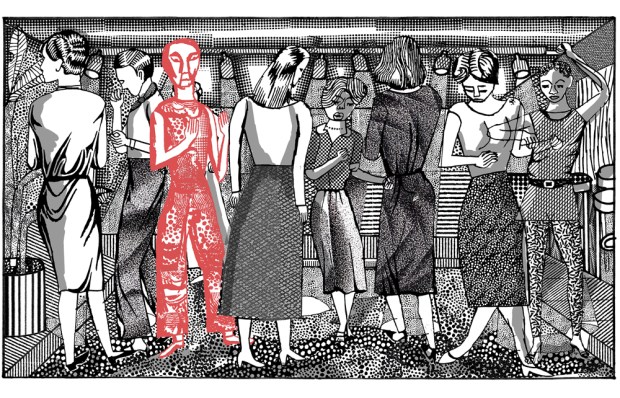






Comments
Don't miss out
Join the conversation with other Spectator Australia readers. Subscribe to leave a comment.
SUBSCRIBEAlready a subscriber? Log in